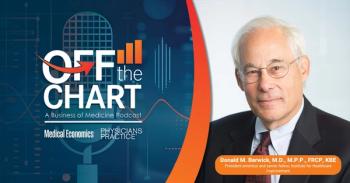
Will Marijuana Legalization Affect Physician Behavior?
Recent state marijuana legalization raises questions as to how the drug’s growing acceptance would influence physicians and their interactions with patients.
General practitioner Dustin Sulak, who runs an integrative-medicine practice, Integr8 Health, LLC, just outside of Portland, Maine, believes marijuana can benefit many patients, from those who suffer from chronic pain or generalized anxiety to those who suffer from cancer or Lou Gehrig’s disease.
But because current Maine law allows for physicians to provide medical marijuana certification for only 11 specific conditions - physicians cannot prescribe cannabis as it is not FDA-approved - Sulak is limited in how many patients he can help use the herb legally.
"At my practice, we're recommending cannabis as a therapeutic treatment, and we're very impressed with the results," Sulak tells Physicians Practice, adding that he can only help patients with the first step: certification for legal marijuana use. After this, patients must either visit a dispensary (there are only eight in the state), obtain marijuana from a "caregiver," a grower that can supply up to five patients, or grow their own. "It would be nice if physicians could direct patients to reputable sources for high-quality, lab-tested cannabis, but this is not legal. When patients leave my office, they are on their own."
Sulak might not have to wait too much longer. In just a few months since marijuana became
However, the verdict is still out on how a shifting perception of marijuana will or won’t influence physician behavior. In addition, while some states are liberalizing their laws on marijuana, that doesn’t settle the questions that clinicians have about whether recommending it is the right or wrong thing to do.
Family medicine physician Robert Brockmann, who is also president of the Colorado Academy of Family Physicians, said that recommending something that’s illegal under federal law would give some physicians pause. But that’s not the only reason docs might not embrace weed.
“There’s a pretty good debate about whether medical marijuana helps or causes more problems,” Brockmann told Physicians Practice. “We know that it helps for things like chemotherapy and nausea, but does it really help for chronic back pain? Does it do anything other than getting them high?”
Brockmann estimates that only about 900 physicians out of 13,000 in his state have ever recommended medical marijuana to patients. Now that the drug is legal in Colorado, he wouldn’t be surprised if fewer patients who need and want it stop visiting their doctor for a recommendation.
Kris Hermes, a media specialist for Americans for Safe Access, a medical marijuana advocacy group, told Physicians Practice it’s too early to tell how legalization will influence physician behavior.
“If the federal government has a compliant attitude and they’re willing to stand by and not aggressively enforce marijuana laws then we could see change,” said Hermes. “What physicians do hear in the news is the federal government cracking down on marijuana. There is great hesitation to do something that might produce retribution from the federal government.”
Because marijuana is largely illegal, with exception to a few states and mostly for certain medical conditions, there are only a handful of studies touting its benefits.
“Sometimes speculation is based more on moral beliefs than scientific studies,” he said.
Sulak said if patients stop visiting doctors who notoriously prescribe pot for the money it makes them rather than altruistic reasons - which he calls “prostitution of a medical license” - then that’s a good thing.
“Most cannabis-prescribing physicians don’t practice medicine,” said Sulak. “A patient comes, pays a fee, and leaves with a certificate. That, of course, will change with legalization.”
Newsletter
Optimize your practice with the Physicians Practice newsletter, offering management pearls, leadership tips, and business strategies tailored for practice administrators and physicians of any specialty.








